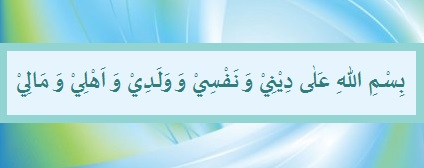Bismillahir Rahmaanir Raheem
THE DAY OF AASHURA (10th of MUHARRAM)
Hazrat Abdullah ibn Abbaas (Radhiyallaahu Anhu) said: “I did not see Rasulullah (Sallallaahu ‘alayhi wasallam) anxiously await the fast of any day, which he gave preference to over other days, but this day, the Day of Aashura.”
(Sahih Bukhari)
It is mentioned that when Rasulullah (Sallallaahu ‘alayhi wasallam) arrived in Madina Munawwarah, he found the Jews fasting on the Day of Aashura and enquired of them: ‘What is this day on which you fast?’
They replied : ‘This is a great day. On this day, Allah saved Musa (عَليْهِ السَّلام) and his people and drowned Fir`aun and his people. Thus Musa (عَليْهِ السَّلام) fasted on this day as a token of thanksgiving, therefore we too fast on this day.”
Rasulullah (Sallallaahu ‘alayhi wasallam) said: ‘We are more worthy of Musa and nearer to him than you.” Thereafter, Rasulullah (Sallallaahu ‘alayhi wasallam) fasted on this day and ordered his companions to keep a fast on this day.
BEING DIFFERENT TO THE JEWS
Hazrat Ibn Abbas (Radhiyallaahu Anhu) said:
“When Rasulullah (Sallallaahu ‘alayhi wasallam) observed the fast of the day of Aashura and ordered (his Companions) to fast, they said: `O Rasulullah! It is a day revered (glorified) by the Jews and Christians.’
Thereupon Rasulullah (Sallallaahu ‘alayhi wasallam) said: “The coming year, if Allah wills (I remain alive), I will surely fast on the ninth (also).”
(Muslim)
Rasulullah (Sallallaahu ‘alayhi wasallam) said: “Observe the fast of Aashura and oppose the Jews. Fast a day before it or a day after.”
(Bayhaqi)
· A person should thus fast on the ninth and the tenth or the tenth and the eleventh of Muharram.
FORGIVENESS
Rasulullah (Sallallaahu ‘alayhi wasallam) was asked regarding the fast of the day of Aashura. Rasulullah (Sallallaahu ‘alayhi wasallam) replied:
“It is a compensation for the (minor) sins of the past year.”
(Sahih Muslim)
GENEROSITY
Nabi (Sallallaahu ‘alayhi wasallam) said:
“One who generously spends on his family on the day of Aashura,
Allah will increase (his provision) for the whole year.”
(Bayhaqi)




















